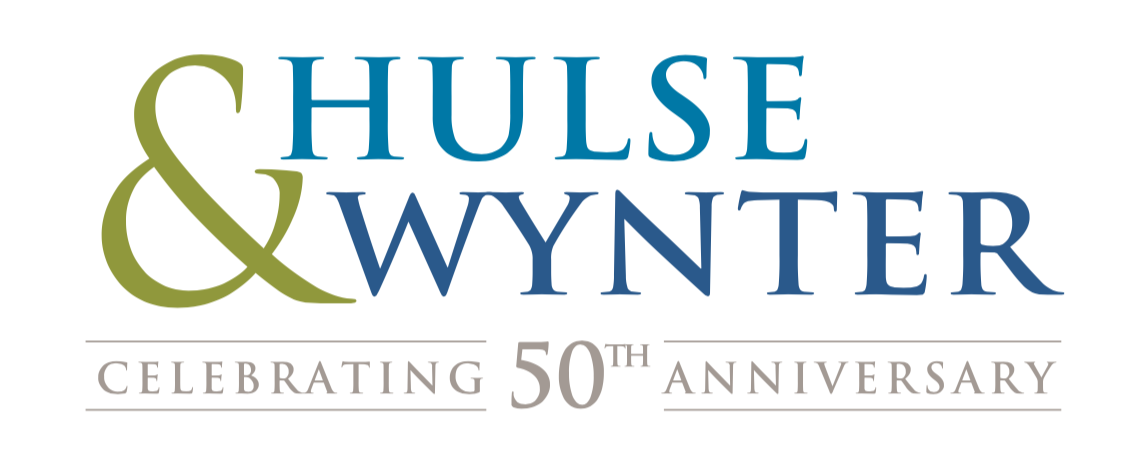Wills and Estates
Wills & Trusts
Wills and trusts are the building blocks of a comprehensive estate plan. When designed and executed with care, these legal instruments can do a great deal to ease the strain on your survivors and protect their interests. By the same token, an incomplete or faulty estate plan can cause great turmoil at just the wrong time.
Wills
A will is the foundation of any estate plan. It is a legal document by which someone:
- sets forth their intentions for the distribution of their property at death;
- names an executor — a person tasked with carrying out the terms of the will; and
- may name a guardian to care for their minor children.
For some clients, a will is all that is required for basic estate planning. This is especially true for younger individuals, couples without children, or those without a great deal of assets. For other clients, the creation of one or more trusts is necessary to establish a comprehensive estate plan.
Trusts
A trust is a legal arrangement in which one party, the settlor, or maker of the trust, transfers property to a second party, the trustee, for the benefit of a third party, the trust beneficiary. Beneficiaries are most commonly minor children, young adults, or disabled adults who might lack the experience or judgment necessary to effectively handle a significant influx of assets.
The law provides for many different types of trusts. Here are a few types that we commonly help clients to create and manage.
Testamentary trusts
A testamentary trust is one created following the testator’s death by a provision of their will (their “last will and testament”). It may contain all or part of the decedent’s estate.
For young, non-disabled beneficiaries, the trust commonly expires when they reach a certain age or milestone, such as graduation from college or marriage.
Living trusts
Living trusts function much like a will. You can use a living trust to leave virtually any of your property to any trust beneficiary you choose. They are often called revocable living trusts because they specify that the settlor may revoke or alter them at any time. When establishing a living trust, you will transfer legal title to the applicable assets to the trust.
The person appointed to handle a living trust after the settlor’s death is referred to as the successor trustee.
A significant advantage of living trusts is that property left through them is not subject to probate. This can mean that trust beneficiaries not only receive the property sooner, but they may receive more of it by avoiding certain probate expenses.
Powers of Attorney
A power of attorney (POA) is a legal arrangement and document by which one person (called the principal) gives to another (the agent) the authority to take certain specified actions on their behalf.
A power of attorney can serve a wide range of purposes and situations, but most often concern one’s financial or medical affairs.
Durable POA and Springing POA
A key characteristic of a POA is whether it remains in effect if the principal becomes incapacitated or unable to make decisions, such as if they are in a coma or if they are deemed mentally incapacitated by an illness such as advanced Alzheimer’s. If it does remain in effect, it is a durable power of attorney.
Springing powers of attorney, take effect only if and when the principal is legally determined to be incapacitated.
Financial Power of Attorney
A financial power of attorney is simply a POA in which the authority granted to the agent concerns the principal’s finances and/or business matters.
Financial POAs are commonly broad in scope, but like all POAs, they are customizable to your exact needs. You might want a POA that allows your agent to do some or all of the following:
- Pay your and/or your family’s ongoing expenses
- Collect government benefits on your behalf
- File and pay income taxes or property taxes
- Manage your small business
- Manage your retirement accounts or other investments
Your estate planning attorney can help you determine exactly what authority to grant your agent.
Convenience
One purpose of a financial POA is convenience. A POA created for the sake of convenience may be durable or non-durable depending on its scope and how it fits into your complete estate plan.
Medical incapacity
Another purpose of a financial power of attorney is in case of medical incapacity. If you become medically unable to make decisions, a financial POA allows your agent to keep your affairs in order while you are incapacitated. Note, that this only applies to durable POAs.
Medical Power of Attorney
A medical power of attorney is a POA used to grant an agent authority to make decisions concerning your health care in the event you are medically incapacitated. It takes effect only if and when you become too sick, injured, or cognitively impaired to make such decisions on your own.
For more on medical POAs, please see our page on advanced medical directives [link].
Real Estate Power of Attorney
A real estate power of attorney is a POA used to grant an agent authority to make decisions and act on your behalf concerning specific real estate transactions typically in the event you are unavailable to participate in those transactions yourself.
If you need an attorney to represent you in contested or uncontested power of attorney matters, call Hulse & Wynter today or use the form below to start a conversation with us.
Advance Medical Directives
Advance medical directives are instructions pertaining to future health care that take effect when someone becomes unable to communicate or make decisions.
Advance health care directives are not just for the seriously ill or the elderly. Everyone is vulnerable to debilitating illness or accidents. Likewise, even if you believe your spouse or adult children understand your health care wishes, specifying them in writing helps reduce stress and guesswork on their behalf, as well as ensuring your wishes are honored.
Advance medical directive
An advance medical directive is a legal arrangement and document whereby you grant a trusted person, your healthcare representative, the authority to make health care decisions on your behalf. It is used to establish what types of medical care you do or do not want to receive if you become unable to direct your own care. Among other purposes, it specifies whether you wish to receive certain types of life-prolonging treatment if you are near death.
Healthcare representative
Your healthcare representative is the person entrusted with the duty to follow all instructions specified in your advance medical directive. They provide oversight to ensure your wishes are fulfilled and make decisions in situations not covered by your directive.
Protect yourself and your loved ones
Advance medical directives are the best way to ensure your health care wishes are fulfilled when others become responsible for your care. The benefits also extend to your survivors, who can avoid stressful disagreements and doubt as to the proper course of action. For your own sake and the sake of your loved ones, make an appointment today to discuss your options with our experienced estate planning attorneys.
If you need an attorney to represent you in any of these matters, call Hulse & Wynter today or use the form below to start a conversation with us.
Guiding you with experience and skill
No matter how simple your estate, a consultation with an experienced estate planning attorney can help ensure your wishes are fulfilled and bring you peace of mind.
And no matter how complex your affairs, the attorneys at Hulse & Wynter are prepared to give expert guidance, collaborate in decision-making, and create the necessary estate planning documents to achieve your objectives.
If you have been putting off starting the estate planning process or need to update your plan, let us show you how painless the process can be. Call Hulse & Wynter today.

For more info, call our offices:
We look forward to speaking with you!
Always quality representation
Every case we handle comes with its own unique set of challenges, but we are ready to meet them all. We're fully equipped to meet the legal needs of everyone from individual clients to large corporations, no matter how complex your situation may be. Get in touch with us using the form on this page or call our offices at 609 387-5300 today.
